





























Airlines, Airports and Airliners News 26 Oct to 1 Nov 2020

AIRLINK FORMALISES NAME CHANGE

Earlier this year, Airlink ended its 23-year franchise agreement with South African Airways and began operating and issuing tickets on its own "4Z" code and designator. This has liberated Airlink and enabled it to forge commercial ties with other international airlines that carry passengers and cargo to and from destinations across Southern Africa. It has subsequently signed collaborative "interline" agreements with Qatar Airways, Emirates, British Airways, KLM, Air France and United.
In addition, Airlink flights are now sold on www.flyairlink.com and no longer via SAA's website.
"The subtle, but significant, name change is a key element of our re-positioning, recovery and growth strategy," said Airlink CEO and Managing Director, Rodger Foster. "It should be seen together with recent commercial developments, including the interline agreements, the launch of our own mainline South African domestic services and new regional routes linking Johannesburg with Maputo and Windhoek. Airlink plans to announce additional new and reinstated routes in the coming weeks and months," he explained.
Airlink's new Johannesburg-Cape Town and Johannesburg-Durban services, which are South Africa's domestic trunk routes, enable Airlink passengers to connect with our other domestic, long-haul and regional flights on a single ticket.
Airlink's modern training and maintenance facilities ensure the airline's self-sufficiency for pilot and cabin crew training as well as for keeping its fleet safe and in prime working condition.
Airlink took advantage of the COVID-19 pandemic and associated lockdowns to focus on its business continuity and future position in what has become a completely changed market. "The measures we have taken have all been in the best interests of the company, its employees, customers, suppliers and shareholders. Today Airlink is a financially sound and robust business," said Mr Foster.
The most visible change will be the introduction of a new corporate livery and branding, which will soon be revealed.
"In the meantime, we continue to remain focussed on the job at hand, operating our schedule and keeping our customers happy by flying them to their destinations safely, on time and affordably," said Mr Foster.
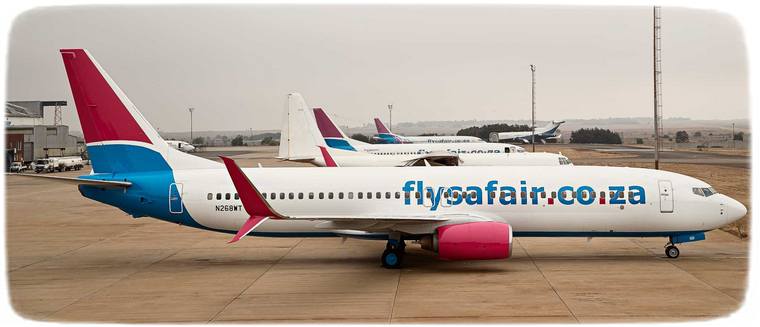
The newest addition to FlySafair's fleet, a Boeing 737-800 Next-Generation aircraft, touched down at OR Tambo International Airport on Thursday last week. A second aircraft is due later this month. FlySafair has been slowly increasing capacity since restarting operations in June this year and these new arrivals will allow for further expansion helping to increase capacity as demand for local travel grows.
Last week the International Air Transport Association (IATA), published new statistics that indicated that 4.5 million African jobs will be lost in aviation and aviation-related industries thanks to the COVID-19 pandemic. This accounts for well over half of the 7.7 million jobs in the sector. South Africa will certainly be no exception to this, as the fate of most local airlines remains hanging in the balance.
"Now's a great time to look to expand your fleet, if you're in a position to do so, because with the industry being where it is, there are plenty of aircraft up for grabs at very reasonable prices" says Kirby Gordon, CMO of FlySafair.
FlySafair's careful resource planning has allowed it to recommence operations, while also ensuring the safety of its employees and customers during the COVID-19 pandemic. This circumspect approach has always stood it in good stead as a bullish competitor in the local market. The Centre for Aviation (CAPA) reports that capacity in South Africa is down about 70% from this time last year and that upwards of 74% of the seats available on the local market are being operated by FlySafair.
"It was important to us that we get our operations going as soon as it was feasible to do so, especially as it was clear that there was not going to be any state support for our sector. We're also in the fortunate position where we perform all our own maintenance, so there's been no reliance on possibly unstable third parties in that regard".
FlySafair's new aircraft, already painted in the company colours, will begin operations as soon as registration requirements are processed by the South African Civil Aviation Authority.
"This new addition will help to increase capacity and hopefully push fares down a bit", says Gordon who added, "we've been holding the mantle for a while now and it's important that we get more capacity into the market through our own expansion and through the return of competitors. Our economy needs lots of affordable air access as a catalyst for recovery".
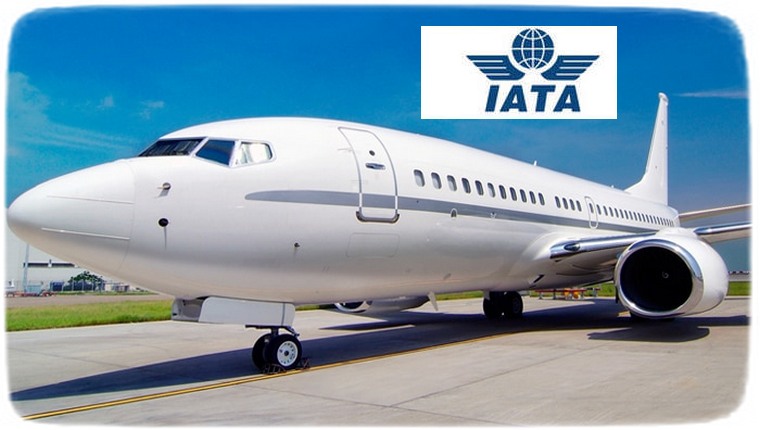
The International Air Transport Association (IATA) presented new analysis showing that the airline industry cannot slash costs sufficiently to neutralize severe cash burn to avoid bankruptcies and preserve jobs in 2021. IATA reiterated its call for government relief measures to sustain airlines financially and avoid massive employment terminations. IATA also called for pre-flight COVID-19 testing to open borders and enable travel without quarantine.
Total industry revenues in 2021 are expected to be down 46% compared to the 2019 figure of $838 billion. The previous analysis was for 2021 revenues to be down around 29% compared to 2019. This was based on expectations for a demand recovery commencing in the fourth quarter of 2020. Recovery has been delayed however, owing to new COVID-19 outbreaks and government mandated travel restrictions including border closings and quarantine measures. IATA expects full year 2020 traffic to be down 66% compared to 2019, with December demand down 68%.
"The fourth quarter of 2020 will be extremely difficult and there is little indication the first half of 2021 will be significantly better, so long as borders remain closed and/or arrival quarantines remain in place. Without additional government financial relief, the median airline has just 8.5 months of cash remaining at current burn rates. And we can't cut costs fast enough to catch up with shrunken revenues," said Alexandre de Juniac, IATA's Director General and CEO.
Although airlines have taken drastic steps to reduce costs, around 50% of airlines' costs are fixed or semi-fixed, at least in the short-term. The result is that costs have not fallen as fast as revenues. For example, the year-on-year decline in operating costs for the second quarter was 48% compared with a 73% decline in operating revenues, based on a sample of 76 airlines.
Furthermore, as airlines have reduced capacity (available seat kilometres, or ASKs) in response to the collapse in travel demand, unit costs (cost per ASK, or CASK) have risen, since there are fewer seat kilometres to 'spread' costs over. Preliminary results for the third quarter show that unit costs rose around 40% compared to the year-ago period.
Looking forward to 2021, IATA estimates that to achieve a breakeven operating result and neutralize cash burn, unit costs will need to fall by 30% compared to average CASK for 2020. Such a decline is without precedent.
Factors contributing to this analysis include:
With international demand down nearly 90%, airlines have parked thousands of mostly long-haul aircraft and shifted their operations to short haul flying where possible. However, because the average distance flown has fallen sharply, more aircraft are required to operate the network. Thus, flown capacity (ASKs) is down 62% compared to January 2019, but the in-service fleet is down just 21%.
Around 60% of the world aircraft fleet is leased. While airlines have received some reductions from lessors, aircraft rental costs have dropped less than 10% over the past year.
It is critical that airports and air navigation service providers avoid cost increases to fill gaps in budgets that are dependent on pre-crisis traffic levels. Infrastructure costs have fallen sharply because of fewer flights and passengers. Infrastructure providers could cut costs, defer capital expenditures, borrow on capital markets to cover losses or seek government financial relief.
Fuel is the only bright spot with prices down 42% on 2019. Unfortunately, they are expected to rise next year as increased economic activity raises energy demand.
While IATA is not advocating specific workforce reductions, maintaining last year's level of labour productivity (ASKs/employee), would require employment to be cut 40%. Further jobs losses or pay cuts would be required to bring unit labour costs down to the lowest point of recent years, a reduction of 52% from 2020 Q3 levels.
Even if that unprecedented reduction in labour costs were to be achieved, total costs will still be higher than revenues in 2021 and airlines will continue to burn through cash.
"There is little good news on the cost front in 2021. Even if we maximize our cost cutting, we still won't have a financially sustainable industry in 2021," said de Juniac.
"The handwriting is on the wall. For each day that the crisis continues, the potential for job losses and economic devastation grows. Unless governments act fast, some 1.3 million airline jobs are at risk. And that would have a domino effect putting 3.5 million additional jobs in the aviation sector in jeopardy along with a total of 46 million people in the broader economy whose jobs are supported by aviation. Moreover, the loss of aviation connectivity will have a dramatic impact on global GDP, threatening $1.8 trillion in economic activity. Governments must take firm action to avert this impending economic and labour catastrophe. They must step forward with additional financial relief measures. And they must use systematic COVID-19 testing to safely re-open borders without quarantine," said de Juniac.
AIRBUS DELIVERS ITS FIRST U.S.-ASSEMBLED A220 FROM MOBILE, ALABAMA
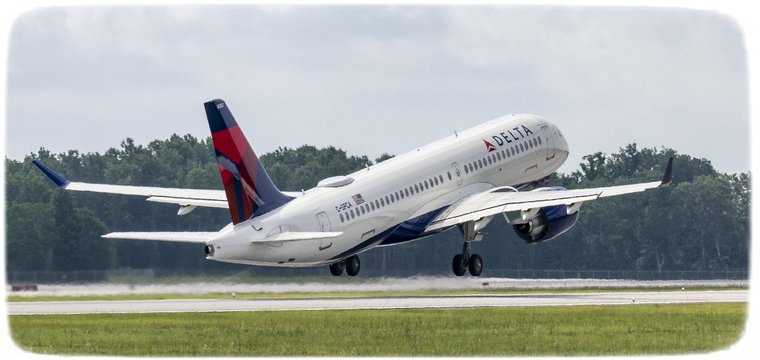
"The delivery of the first U.S.-built A220-300 is a historic moment that highlights Airbus' growing industrial footprint in North America and makes us all extremely proud," said C. Jeffrey Knittel, Chairman & CEO Airbus Americas, Inc. "We look forward to seeing passengers delighted by the experience of travelling on board this brand new A220-300 proudly built in Mobile, Alabama."
Several milestones led up to this historic moment. From the ground breaking of the Mobile A220 Final Assembly Line in January 2019, through the official start of A220 production in August 2019, and the inaugural flight of this aircraft in June, the A220 teams in Mirabel (Quebec) and Mobile worked closely together to make the A220 production in the U.S. a success.
"Handing over the first U.S-assembled aircraft to a U.S.-based customer is a real point of pride for the A220 programme," said Philippe Balducchi, leading the A220 programme. "This delivery is the first of many to come and shows the strong collaborative spirit between the A220 Programme teams globally."
To date, approximately 400 U.S. employees have been trained on A220 production - some in Mirabel, Quebec, Canada, where the A220 program and primary final assembly line are located. A year ago, the first U.S. based A220 production team, comprised of experienced and new team members, began assembling A220s in Mobile.
Delta Air Lines is currently the largest A220 customer, with a total of 95 A220 aircraft on order and will be the first A220 operator in the Americas to be operating both A220-100 and A220-300 aircraft types.
Benefitting from the latest technologies, the A220 is the quietest, cleanest and most eco- friendly aircraft in its category. Featuring a 50% reduced noise footprint compared to previous generation aircraft, 25% lower fuel burn per seat and 50% lower NOx emissions than industry standards, the A220 is a great aircraft for neighbourhood airports. Being a clean-sheet design, the A220 offers unrivalled operational efficiency and 25% lower operating costs per seat compared to previous generation aircraft.
As of end September 2020, 123 A220s have been delivered to seven operators and are being flown on routes in Asia, America, Europe and Africa, proving the great versatility of Airbus' latest family member.
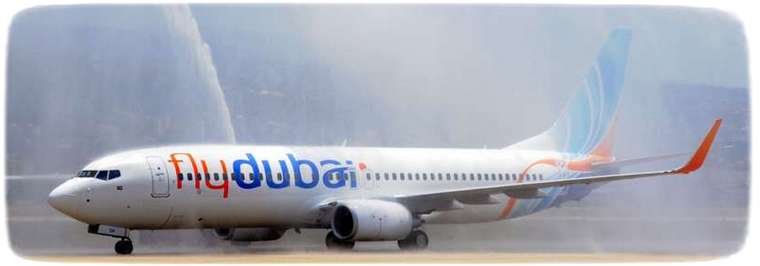
Dubai-based airline, flydubai, has announced the resumption of flights to Malé, the capital of the island nation, the Maldives. The service, which the carrier initially operated between 2013 and 2018, will be reinstated from 27 October due to popular demand as the Indian Ocean destination welcomed back tourists of all nationalities earlier this summer.
flydubai flights will operate four times a week to Malé on Tuesdays, Thursdays, Fridays and Saturdays. Flight FZ 1569 will depart from Terminal 3, Dubai International (DXB) at 10:35 and the return flight FZ 1570 will depart from Maldives' Velana International Airport (MLE) at 23:30 (local time). This brings the number of destinations flydubai operates to 40 across its network in Africa, Central Asia, Europe, Indian Subcontinent and the Middle East.
Commenting on the start of flights to Malé, Ghaith Al Ghaith, Chief Executive Officer at flydubai, said: "We continue to see signs of recovery as more countries start to lift restrictions on international travel. Working together, all the stakeholders in the travel industry have a role to play to safeguard travel in this new environment enabling more people to travel confidently. We remain agile in our operations and committed to gradually adding more flights to further support the flow of trade and tourism around the region as we look ahead to this new way of travel in the months to come."
The carrier has been steadily increasing its operations since July and continues to operate all-cargo flights and repatriation flights in addition to its published schedule. The new service to the Maldives will give passengers more access to a holiday destination from Dubai and further afield whether connecting on the flydubai network or through its codeshare with Emirates.
In line with the comprehensive COVID-19 safe tourism guidelines and hygiene certification programme issued by the Maldivian Ministry of Tourism in June, all 156 resorts situated in the island nation will be required to take protective measures, ensuring the safety of tourists and also staff working in the industry.
Sudhir Sreedharan, Senior Vice President of Commercial Operations (UAE, GCC, Africa and the Indian Subcontinent) at flydubai, said: "We are pleased to restart our operations to the Maldives. This has always been a popular destination for our passengers in the UAE, GCC and the Russian speaking markets who are seeking a beach holiday. With Holidays by flydubai expanding its hotels and ancillary offering, we are now able to offer our passengers full packages at affordable prices whether they choose to fly in Business or Economy."
By combining internally sourced wholesale hotel rates and rates provided by third parties with competitive airfares, Holidays by flydubai offers extremely competitive travel packages. Customers will also have the option to add ancillary services to their holiday experience, including airport transfers, sightseeing packages, UAE visa facilitation, car rental and excursions.
flydubai has recently introduced a new COVID-19 cover to encourage more people to travel with ease of mind knowing that they will be looked after at every step of their journey. Passengers booking with flydubai for travel between 01 September and 30 November 2020 will automatically receive free global cover for COVID-19. The new service covers passengers' health expenses and quarantine costs if diagnosed with COVID-19 during their trip.
In the UAE, flydubai has also partnered with Aster DM Healthcare and NMC Healthcare to offer passengers PCR testing at special rates. To take advantage of these special rates, passengers must be able to present a valid flydubai booking confirmation along with their Emirates ID or passport copy.
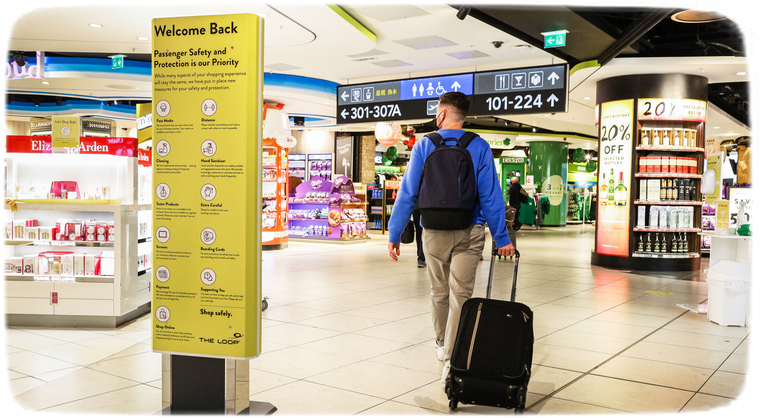
Dublin Airport has received a global endorsement for the measures that it has introduced to protect the safety of passengers and staff during the COVID-19 pandemic.
The airport's efforts have been formally recognised by Airports Council International (ACI) World and ACI EUROPE and Dublin Airport is now a member of ACI's Airport Health Accreditation programme.
The airport health accreditation programme provides airports with an independent assessment of the new health measures and procedures that have been introduced as a result of the COVID-19 pandemic. It also measures an airport's compliance with new industry standards in relation to health safety.
"After reviewing the evidence presented through our evaluation process, Dublin Airport has shown that it is providing a safe airport experience for all travellers," said ACI Director General Luis Felipe de Oliveira. Dublin Airport is operating "in line with the recommended health measures established in the ACI Aviation Business Restart and Recovery guidelines and ICAO Council Aviation Recovery Task Force Recommendations, along with industry best practice", he added.
"This accreditation shows that the processes and systems that Dublin Airport has put in place are world-class and fully aligned with best practice in our sector. As a result of their hard work and dedication, passengers can confidently enjoy their journeys in a safe environment."
It has installed more than 1,000 hand sanitisers throughout the airport and more than 700 plexiglass screens are in place at close contact points throughout the airport. About 12,000 separate pieces of COVID-19 related signage are in place to assist and inform passengers and there are also regular announcements on the airport's public address system to remind passengers of social distancing guidelines.
Dublin Airport's cleaning processes have also been enhanced to reflect COVID-19. All key contact surfaces such as security trays, self-service kiosks, escalator handrails and trolleys are now undergoing enhanced cleaning, with a specific focus on any areas where passengers dwell.
Modern electrostatic disinfection techniques are being used in many key areas. This electrostatic cleaning uses a special spray which is electrically charged and this enables the sanitisers and disinfectants in the spray to wrap around and evenly coat all types of surfaces for a much more complete and longer lasting clean.
"The safety of our passengers, our employees and the staff of all the other companies that operate on the campus is always Dublin Airport's main priority," Mr Harrison added. "We introduced our safety measure based on a comprehensive series of risk assessments and the new international guidelines and it is very pleasing that the efforts of the entire Dublin Airport team have been recognised in this manner."
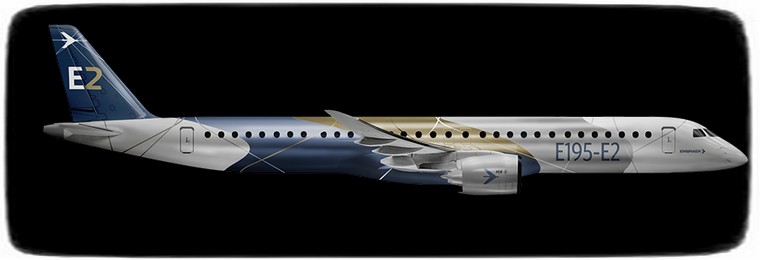
Embraer (NYSE: ERJ; B3: BOVESPA: EMBR3) delivered a total of 28 jets in the third quarter of 2020, of which seven were commercial aircraft and 21 were executive jets (19 light and 2 large). As of September 30, the firm order backlog totalled USD 15.1 billion.
During the 3Q, Embraer Executive Jets reached the milestone of the 250th business jet in operation in Latin America with the delivery of a Phenom 100EV and a Phenom 300E to two separate Brazilian customers. In the same period, Embraer Executive Jets delivered the first Phenom 300E with the new Bossa Nova interior to Joe Howley, co-founder of Patient Airlift Services (PALS).
Also, in the third quarter, Helvetic Airways signed a commitment to convert four of their remaining firm orders to the larger E195-E2 aircraft. The original order, for 12 E190-E2s with purchase rights for a further 12 and conversion rights to E195-E2, was announced in September 2018. Embraer has so far delivered five E190-E2s to Helvetic Airways and all deliveries of the remaining seven aircraft, including the four E195-E2s, will be completed before the end of 2021. In addition, during the period, Bamboo Airways, from Vietnam, received and started operations with two first generation used E195 aircraft.
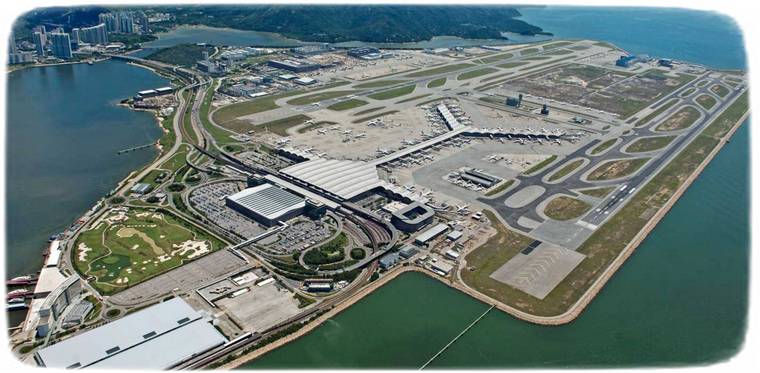
Airport Authority Hong Kong (AA) today released the traffic figures of Hong Kong International Airport (HKIA) for September 2020. During the month, the airport handled 100,000 passengers and 10,535 flight movements, representing year-on-year decreases of 97.9% and 68.5%, respectively. Cargo throughput was 388,000 tonnes, recording a year-on-year drop of 4.4%, while freighter movements surged 25.0% to 6,020, up from 4,815 recorded during the same month last year.
Travel demand remained weak as a result of the continuation of Hong Kong's entry restrictions for non-residents, as well as immigration restrictions and quarantine measures implemented in different countries and regions. During the month, passenger traffic decreased significantly in all categories, namely Hong Kong residents, visitors and transfer/transit passengers, compared to the same month last year.
On the cargo front, although imports and exports increased by 10% and 4% respectively compared to the same month last year, transhipments experienced a significant decrease due to shortage of belly capacity on passenger flights. Cargo throughput to and from Southeast Asia and Mainland China experienced the most significant decreases during the month.
Over the first nine months of the year, HKIA handled 8.6 million passengers and 124,555 flight movements, reporting 84.5% and 60.9% declines, respectively. Cargo throughput saw an 8.4% drop to 3.2 million tonnes.
On a 12-month rolling basis, passenger throughput and flight movements recorded 66.7% and 47.3% year-on-year declines to 24.7 million and 225,425, respectively. Cargo throughput fell 7.0% to 4.5 million tonnes.
Separately, the AA received the "Elite Employee Wellness Award" in the HR Excellence Award 2019/20 organised by the Hong Kong Institute of Human Resource Management, in recognition of the AA's efforts in protecting and enhancing the health and well-being of its employees.
Florence Chung, Executive Director, Human Resources & Administration of the AA said, "Guided by our core value of caring for people, the AA provides full support to its staff by looking after their well-being and motivating colleagues to lead healthy habits through various wellness programmes. We are honoured to receive this award in recognition of our endeavours to encourage staff to lead an active lifestyle and strike a work-life balance."
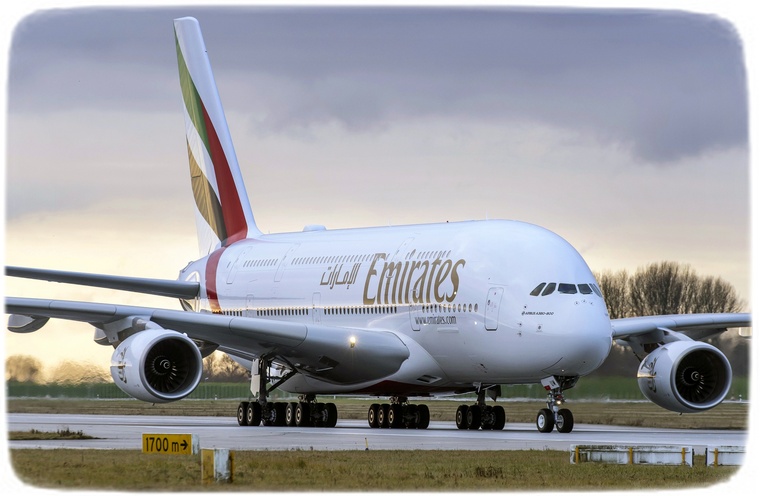
Emirates Airline on 27 October has sent its first Airbus A380 into retirement. The aircraft departed Dubai, U.A.E destination Tarbes-Lourdes, France. The retirement of the A380 is not because of Covid 19, but has been planned before the coronavirus pandemic grounded most of Emirates' A380-fleet.
This aircraft made its last scheduled flight from Muscat, Oman to Dubai (DXB) on 23 February, before it flew to Dubai World Centre on 28 February and back to Dubai on 25 March. It has been there ever since.
A6-EDB was delivered to Emirates in October 2008. This makes it among the first of the A380s to enter service with the airline. Thus, it is not surprising it is the first one to leave the fleet, website Simpleflying knows.

Qatar Airways has announced that it has taken delivery of three more Airbus A350-1000 aircraft, reaffirming its position as the largest operator of Airbus A350 aircraft with 52 in its fleet. All three A350-1000 are fitted with the airline's multi award-winning Business Class seat, Qsuite and will operate on strategic long-haul routes to Africa, the Americas, Asia-Pacific and Europe.
Qatar Airways Group Chief Executive, His Excellency Mr. Akbar Al Baker, said: "Qatar Airways is one of the few global airlines to have never stopped flying throughout this crisis. As one of the only airlines to continue taking delivery of new aircraft at this time, our strategic investment in modern, fuel-efficient twin-engine aircraft has enabled us to continue flying taking over 2.3 million people home on more than 37,000 flights since the start of the pandemic. Due to COVID-19's impact on travel demand, we will continue to fly greener and smarter by keeping our fleet of Airbus A380 grounded, as it is not commercially or environmentally justifiable to operate such a large aircraft in the current market.
"Environmentally conscious passengers can travel with the reassurance that Qatar Airways continuously monitors the market to assess both passenger and cargo demand to ensure it operates the most efficient aircraft on each route. Rather than being forced to fly oversized aircraft due to limited aircraft options, reducing the flexibility for passengers to travel when they want, Qatar Airways has a variety of sustainable aircraft it can choose from to offer more flights with the right capacity in each market. Passengers can also rely on our airline operate an honest schedule of flights with our mixed fleet giving us the ability to maintain services and upgrade or downgrade aircraft size depending on passenger demand."
Passenger travelling on-board Qatar Airways' state-of-the-art Airbus A350-1000s can enjoy:
The widest cabin body of any class with larger windows creating an extra spacious feel. The widest seats of any aircraft in its category with generous room in all classes. Advanced air system technology including HEPA filters which deliver optimal cabin air quality, renewing air every two-to-three minutes for more comfort and less fatigue. LED mood lighting which mimic a natural sunrise and sunset to help reduce the effects of jet lag. The quietest cabin of any twin-aisle aircraft that includes a draft-free air circulation system resulting in a low ambient cabin noise level for a more peaceful journey.
The airline's internal benchmark compared the A380 to the A350 on routes from Doha to London, Guangzhou, Frankfurt, Paris, Melbourne, Sydney and New York. On a typical one-way flight, the airline found the A350 aircraft saved a minimum of 16 tonnes of carbon dioxide per block hour compared to the A380. The analysis found that the A380 emitted over 80% more CO2 per block hour than the A350 on each of these routes. In the cases of Melbourne and New York, the A380 emitted 95% more CO2 per block hour with the A350 saving around 20 tonnes of CO2 per block hour. Until passenger demand recovers to appropriate levels, Qatar Airways will continue to keep its A380 aircraft grounded, ensuring it only operates commercially and environmentally responsible aircraft.
Ed's note: While some airways have planned strategies in phasing out A380 models, this is likely to be accelerated in the future.
Qatar Airways' onboard safety measures for passengers and cabin crew include the provision of Personal Protective Equipment (PPE) for cabin crew and a complimentary protective kit and disposable face shields for passengers. Business Class passengers on aircraft equipped with Qsuite can enjoy the enhanced privacy this award-winning business seat provides, including sliding privacy partitions and the option to use a 'Do Not Disturb (DND)' indicator. Qsuite is available on flights to more than 30 destinations including Frankfurt, Kuala Lumpur, London and New York. For full details of all the measures that have been implemented onboard and in HIA, please visit qatarairways.com/safety.
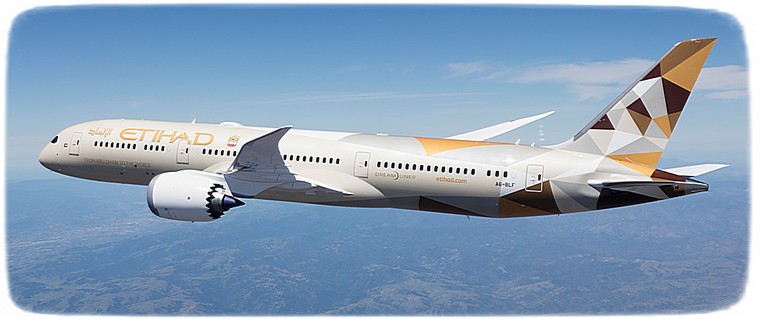
Etihad Airways, the national airline of the UAE, became the first GCC carrier to operate a commercial passenger flight to and from Israel, to bring Israel's top travel and tourism leaders to the UAE.
The historic flight, flown in partnership with the Maman Group, departed Tel Aviv on 19 October, operated by an Etihad Boeing 787 Dreamliner aircraft for the three-and-a-half-hour journey from Israel to the UAE. The return journey departed Abu Dhabi on 21 October.
As a travel trade mission, the flight brought a group of tourism industry leaders, key corporate decision makers, travel agents and cargo agents, along with media to experience Abu Dhabi and the wider UAE, at the invitation of Etihad Airways and representatives of Abu Dhabi's tourism industry.
This is the latest development in a growing cooperation between the two nations following the establishment of diplomatic ties and the signing of the Abraham Accords between the UAE and Israel in Washington D.C. on 15 September. It also follows Israeli national airline El Al's first symbolic commercial flight between Tel Aviv and Abu Dhabi on 31 August.
His Excellency Mohamed Mubarak Fadhel Al Mazrouei, Chairman, Etihad Aviation Group, said: "Today's flight is a historic opportunity for the development of strong partnerships here in the UAE, and in Israel, and Etihad as the national airline, is delighted to be leading the way. We are just starting to explore the long-term potential of these newly forged relationships, which will be sure to greatly benefit the economies of both nations, particularly in the areas of trade and tourism and ultimately, the people who call this diverse and wonderful region home."
As an important facilitator of trade, the flights between Tel Aviv and Abu Dhabi will also carry commercial cargo sourced from, and destined for, points across Etihad's global network, in addition to commercial guests.
Coinciding with the first commercial flight and in celebration of the recent peace accords between the UAE and Israel, Etihad has become the first non-Israeli airline in the Middle East to launch a dedicated website for the Israeli market in Hebrew. Also available in English, the Israeli version of the airline's official website contains digital content including extensive information on Etihad's operations, product, services and network. The site also includes an Abu Dhabi destination guide.

Ryanair, Europe's no.1 airline, announced green light flights from the UK to the Canaries from only £29.99 one way, following the UK's removal of the popular island group from its travel danger list.
A firm favourite among UK holidaymakers, the opening of the Canaries allows Ryanair customers to soak up some winter sun while flying on the lowest fares and with a new set of health measures that has been rolled out to protect its customers and crew.
Ryanair has launched a seat sale with fares available from just £29.99, for travel from October to the end of January. Sit back, buckle up and enjoy some well-deserved winter sun to The Canary Islands - a UK travel corridor.
Ryanair's Alejandra Ruiz said: "We are delighted that the UK has added the Canary Islands to travel corridor list. This allows our UK customers to book a well-deserved winter sun getaway without the worry of having to quarantine on return, flying on the lowest fares with Ryanair, Europe's favourite airline.
To celebrate its addition to the UK travel corridor, we have launched a seat sale with flights to Lanzarote, Tenerife and Fuerteventura, for travel between October until the end of January, from just £29.99 one way, which must be booked by midnight Monday (26th Oct). Since these amazing low prices will be snapped quickly, customers should visit Ryanair.com and book their flights with us today!"
www.youtube.com/channel/UCCuRVZAGodT6sztTeXBGeMw
and subscribe to our YouTube channel

 |
 |
 Copyright © 2024 Pilot's Post PTY Ltd
The information, views and opinions by the authors contributing to Pilot’s Post are not necessarily those of the editor or other writers at Pilot’s Post.
Copyright © 2024 Pilot's Post PTY Ltd
The information, views and opinions by the authors contributing to Pilot’s Post are not necessarily those of the editor or other writers at Pilot’s Post.